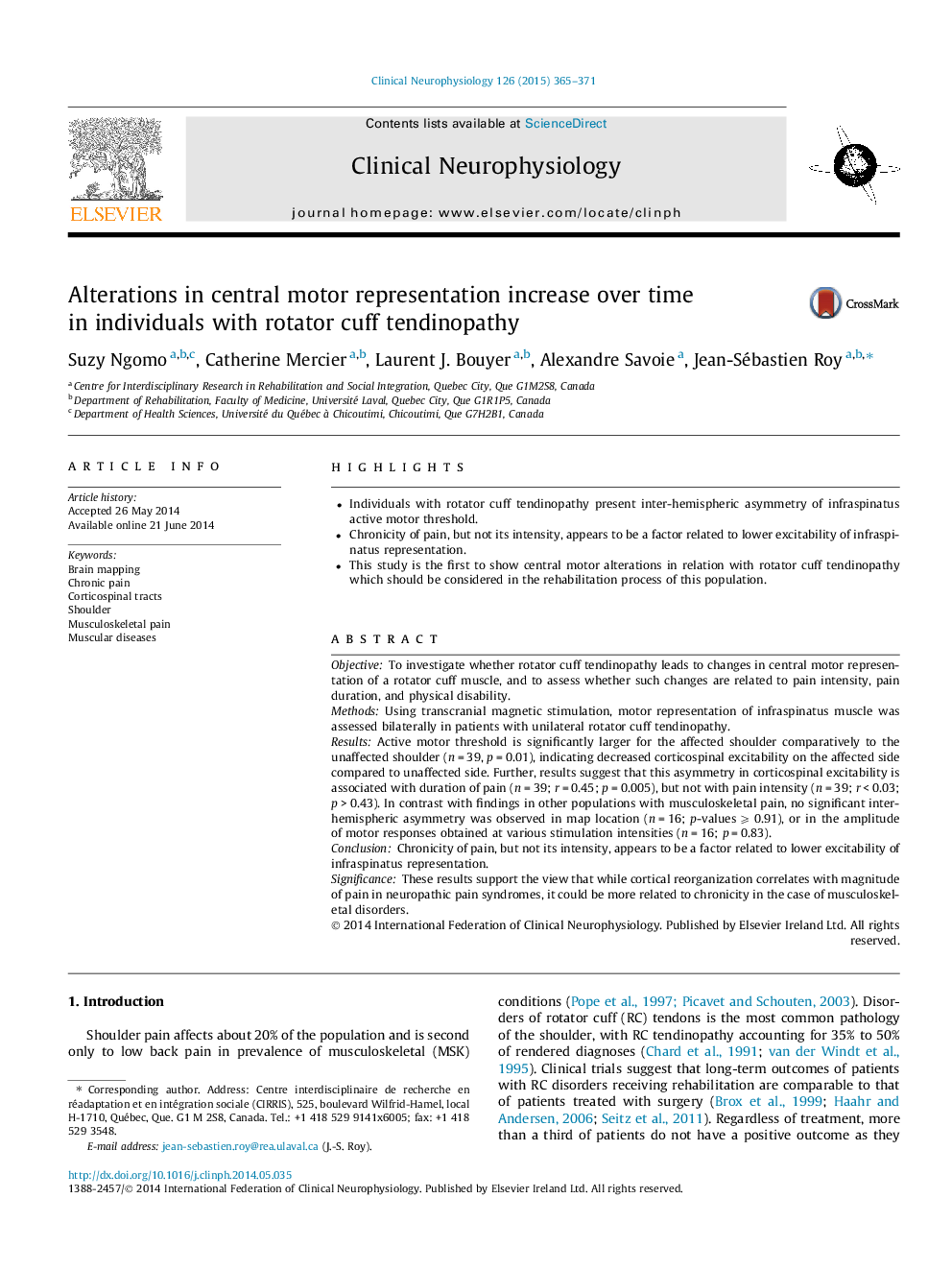| Article ID | Journal | Published Year | Pages | File Type |
|---|---|---|---|---|
| 3043080 | Clinical Neurophysiology | 2015 | 7 Pages |
•Individuals with rotator cuff tendinopathy present inter-hemispheric asymmetry of infraspinatus active motor threshold.•Chronicity of pain, but not its intensity, appears to be a factor related to lower excitability of infraspinatus representation.•This study is the first to show central motor alterations in relation with rotator cuff tendinopathy which should be considered in the rehabilitation process of this population.
ObjectiveTo investigate whether rotator cuff tendinopathy leads to changes in central motor representation of a rotator cuff muscle, and to assess whether such changes are related to pain intensity, pain duration, and physical disability.MethodsUsing transcranial magnetic stimulation, motor representation of infraspinatus muscle was assessed bilaterally in patients with unilateral rotator cuff tendinopathy.ResultsActive motor threshold is significantly larger for the affected shoulder comparatively to the unaffected shoulder (n = 39, p = 0.01), indicating decreased corticospinal excitability on the affected side compared to unaffected side. Further, results suggest that this asymmetry in corticospinal excitability is associated with duration of pain (n = 39; r = 0.45; p = 0.005), but not with pain intensity (n = 39; r < 0.03; p > 0.43). In contrast with findings in other populations with musculoskeletal pain, no significant inter-hemispheric asymmetry was observed in map location (n = 16; p-values ⩾ 0.91), or in the amplitude of motor responses obtained at various stimulation intensities (n = 16; p = 0.83).ConclusionChronicity of pain, but not its intensity, appears to be a factor related to lower excitability of infraspinatus representation.SignificanceThese results support the view that while cortical reorganization correlates with magnitude of pain in neuropathic pain syndromes, it could be more related to chronicity in the case of musculoskeletal disorders.
